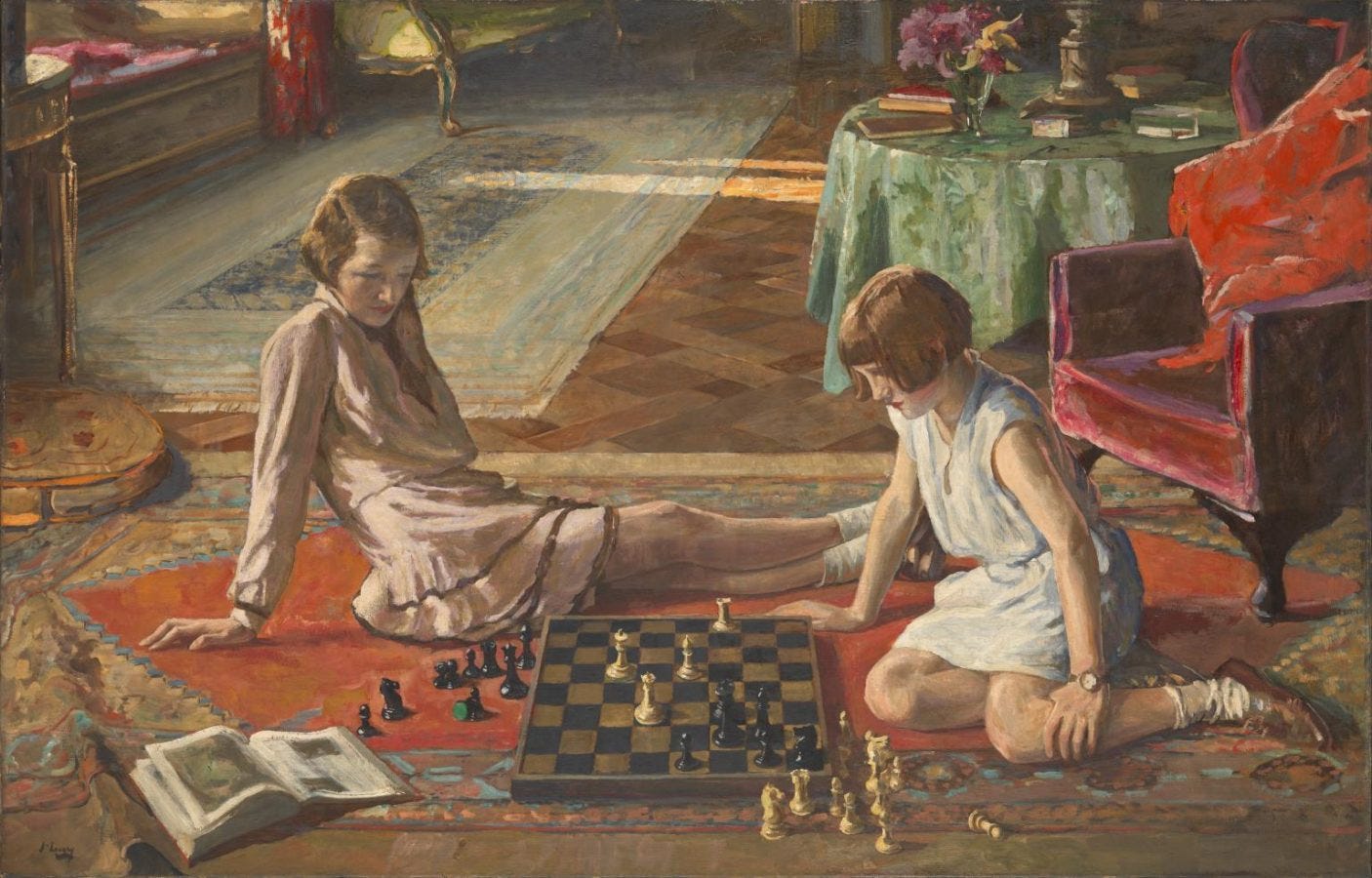Baby Queen Gambit
A Child’s View of Checkmate
When she was eight years old, my daughter received her first lesson in chess from her godmother, Honey Lee.
(Since blackjack went so well).
She then tested out her game with a couple of other sympathetic adults. Later, I heard some competitive yelping from behind her bedroom door as she played against herself—or some imaginary loser, I don't know who.
Those games seemed to end rather quickly.

I myself barely know a rook from a rooster, but I was captivated to watch our daughter play. For one, she was emotional, surprisingly rowdy. —Not the chess stoicism I thought one is supposed to cultivate. She whistled loudly while her opponent was contemplating a next move, and she had one big cry when her dad, Jon, "stole" her knight.
Then, there was her bliss. Instead of saying "Check" when she glimpsed victory in sight, she sang out, "POP goes the weasel!"
At a garage sale, I picked up a beginner’s instruction book (Nigel Short’s Chess Basics) to see if this weasel stuff was part of the chess vocabulary.
"Oh yes," said Jon, "that's what Fischer said to Spassky in Reykjavik."
It isn’t that far fetched. I found a story in the book's gamesmanship chapter about two adult champions, Petrosian and Korchnoi, who, in a 1977 tournament, kicked each other viciously under the table until a below-the-waist partition had to be built to separate them.
I was riveted by my 8-year-old’s competitive spirit; her desire to win and gloat. Early in her very first game with Honey Lee, she warned, "When I'm done with you, your life won't be worth a penny."
Honey lit a Sherman. “Is that so?”
We still don’t know where little girl got that from.


